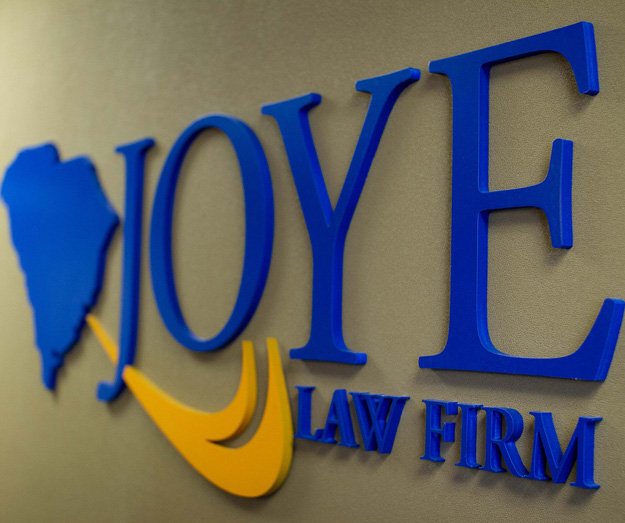If you’ve suffered a work-related injury or illness, you may be wondering whether to file for workers’ compensation, disability insurance, or both. Workers’ compensation provides benefits for medical expenses and partial wage replacement, while Social Security Disability (SSD) provides income replacement for those who have worked but are now unable to do so due to a disability.
Understanding how these coverages differ and how filing for benefits impacts your coverage can help you decide your next steps.
The South Carolina workers’ compensation lawyers at Joye Law Firm can help you review your coverages to get you the most benefits for your injury.
When to Use Workers’ Comp
Workers’ compensation provides benefits to employees who are injured or become ill while on the job. It is a form of insurance that is required by law in South Carolina for almost all employers and is paid for by the employers.
The benefits provided by workers’ compensation can include medical treatment, temporary or permanent disability payments, and death benefits.
When to Use Social Security Disability
SSD (Social Security Disability) provides income replacement for those who have become disabled and are unable to work due to a disability, regardless of whether it occurred on the job.
This is a federal program under the Social Security Administration. Benefits are based on the recipient’s earnings record and may also include coverage for certain medical expenses and physical rehabilitation services.
Do I Need Both?
If you are thinking about SSD insurance, you may still benefit from filing for workers’ comp benefits. Workers’ comp has the following advantages:
- Workers are eligible to start their first day on the job, while SSD is only paid out after workers have paid into the Social Security system for a substantial amount of time.
- Typically pays out more quickly than SSD benefits
- Benefits are not subject to the same income limits as SSD benefits
- May help you maintain your job and return to work, whereas SSD is meant for those who are expected to be unable to work for at least a year or ever again
When to Use Both
Many of our most seriously injured workers’ compensation clients can also receive Social Security disability benefits. Injured workers may end up applying for SSD because their permanent physical restrictions due to their injuries (combined with a host of other factors) are such that no reasonably stable job market exists for them.
For example, imagine that you are a 55-year-old who has worked in the construction industry for nearly 40 years. You hurt your back while working and you end up having a multi-level lumbar fusion surgery. At the end of your treatment, your surgeon places a number of permanent physical restrictions on you, including lifting no more than 25 pounds.
Your workers’ compensation benefits should cover the cost of your medical treatment and partial wage replacement during recovery. However, it won’t come as a surprise to anyone that most construction companies have little use for a worker who can’t lift more than 25 pounds, and it would be difficult at that age to transition to a new industry in which you have no experience.
With these facts, our law firm would certainly pursue a claim for total and permanent disability benefits under the South Carolina Workers’ Compensation Act.
Should I Apply for Both at the Same Time?
We usually advise our clients to hold off on applying for SSD benefits until their workers’ compensation case is settled. Why do we do that? Applying for Social Security Disability Insurance benefits can significantly hamstring any efforts to maximize someone’s settlement in a workers’ compensation case.
In other words, if you receive SSDI benefits, your workers’ compensation will be reduced and vice versa.
Applying for SSD benefits while your workers’ compensation case is pending limits our ability to maximize your workers’ compensation case by settling it on a clincher basis. A clincher settlement is a universal settlement that resolves ALL of your entitlement to further benefits under the Workers’ Compensation Act, including future medical care.
In many instances, a primary driver of the final settlement figure in workers’ compensation cases is the projected future medical costs the injured worker is likely to incur.
Additional Considerations for Filing a Workers’ Comp Claim with SSD
If you’re considering filing for both workers’ comp and SSD, there are several factors to keep in mind. These factors include whether SSD can put a lien on your workers’ comp benefits and if workers’ comp would provide additional support beyond what SSD covers.
Liens
SSD (Social Security Disability) can put a lien on workers’ compensation benefits if an individual is receiving both types of benefits. This is known as a workers’ compensation offset and is intended to ensure that the individual is not receiving more than 80% of their pre-disability income.
The offset amount varies based on your average current earnings and the amount of your workers’ compensation benefits. Consulting with an experienced workers’ comp attorney from Joye Law Firm can help you protect your SSD coverages while also receiving benefits through workers’ comp.
Approval Time Frames and Requirements
Workers’ compensation typically has a shorter approval process than SSD. Workers’ compensation benefits are provided by your employer’s insurance carrier and are designed to cover any work-related injuries or illnesses.
After a work-related injury, you can begin receiving lost wage benefits after one week off work. Additionally, if you are out of work due to your injuries for 14 days or more, you can retroactively receive benefits starting from the first day of incapacity.
SSD benefits are administered by the federal government and require a more rigorous review process. In order to be approved for SSD benefits, you must demonstrate that you have a qualifying disability that will last at least 12 months or result in death. You must also show that you cannot perform substantial gainful activity. This process can take several months or even years.
Get Help From a Workers’ Compensation Attorney
Navigating the complex system of workers’ compensation can feel overwhelming, especially if you are dealing with a workplace injury or illness. Our workers’ comp attorneys at Joye Law Firm can provide invaluable assistance and guidance throughout the process, ensuring that you receive the maximum benefits available to you.
Our lawyers are experienced in handling workers’ compensation cases and can help you navigate your benefits to ensure you receive what you’re entitled to. We can ensure you don’t lose out on your SSD coverages due to filing a workers’ compensation claim, so you can focus on recovery from your injuries.
Contact us so we can help you obtain the benefits you are entitled to and provide you with the peace of mind that comes with having an experienced legal team on your side.
Originally published May 29, 2023. Updated March 18, 2024.


































